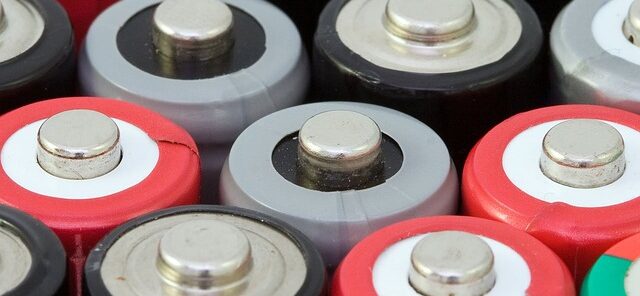We attend countless fires caused by chargers, cables and batteries – especially lithium-ion – every year.
On their own, and when used safely, batteries aren’t dangerous. However, when they are damaged, over-charged, short-circuited or submerged in water, they can become a serious fire risk.
Lithium-ion batteries, also known as li-ion, are the rechargeable batteries found in modern devices such as phones and laptops, as well as mobility scooters and e-cigarettes.
Please follow our advice below around the safe use of these products, to ensure you and your loved ones remain safe from fire!
And in the event of a fire involving a li-ion battery – get out, stay out, call 999.
Charging
- Follow the manufacturer’s instructions when charging and always unplug your charger when it’s finished charging
- Ensure you have working smoke alarms – or heat alarms if you charge or store your e-bike or e-scooter in a garage or kitchen
- Charge batteries whilst you are awake and alert so if a fire should occur you can respond quickly – don’t leave batteries to charge while you are asleep or away from the home
- Always use the manufacturer approved charger for the product, and if you spot any signs of wear and tear or damage buy an official replacement charger
- Do not cover chargers or battery packs when charging as this could lead to overheating or even a fire
- Do not charge batteries or store your e-bike or e-scooter near combustible or flammable materials
- Do not overload socket outlets or use inappropriate extension leads (use un-coiled extensions and ensure the lead is suitably rated for what you are plugging in to it)
Storage
- Avoid storing or charging e-bikes and e-scooters on escape routes or in communal areas of a multi occupied building
- Responsible Persons should consider the risks posed by e-bikes and e-scooters where they are charged or left in common areas such as means of escape, bike stores and mobility
- Store e-bikes and e-scooters and their batteries in a cool place – avoid storing them in excessively hot or cold areas
- Follow manufacturer’s instructions for the storage and maintenance of lithium -ion batteries if they are not going to be used for extended periods of time
Buying
- Buy e-bikes, e-scooters and chargers and batteries from reputable retailers
- Many fires involve counterfeit electrical goods – only buy genuine items which meet British or European safety standards
- If buying an e-bike conversion kit, purchase from a reputable seller and check that it complies with British or European standards
- Register your product with the manufacturer to validate any warranties – batteries are usually included in warranties
Damage and disposal
- Where the battery is damaged, it can overheat and catch fire without warning – check your battery regularly for any signs of damage and if you suspect it is damaged it should be replaced and should not be used or charged
- If you need to dispose of a damaged or end of life battery, don’t dispose of it in your household waste or normal recycling – check with your local authority for suitable battery recycling arrangements in your area

